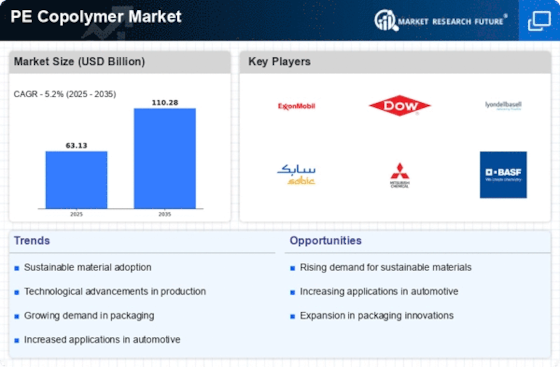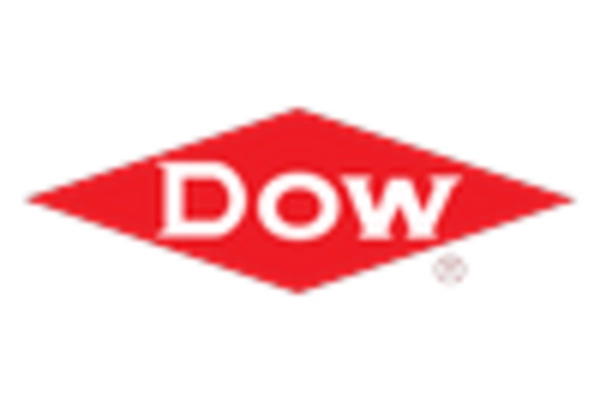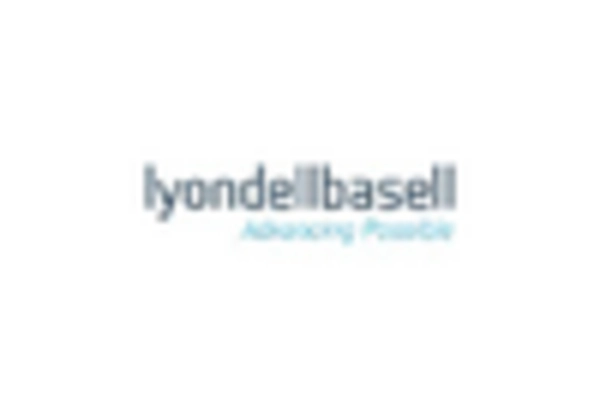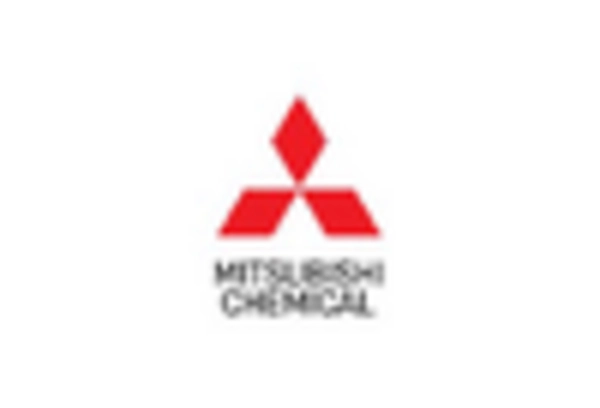Market Trends
Key Emerging Trends in the PE Copolymer Market
The PE copolymer market is witnessing notable trends that are reshaping its landscape and driving growth across various industries. One significant trend is the increasing demand for PE copolymers in the packaging sector. PE copolymers, known for their versatility, durability, and excellent sealing properties, are widely used in packaging applications such as food packaging, consumer goods packaging, and industrial packaging. With the growing consumer demand for convenience, safety, and sustainability in packaging, the demand for PE copolymers is on the rise. Moreover, advancements in packaging technology and the development of innovative packaging solutions are driving the adoption of PE copolymers in flexible and rigid packaging formats, further fueling market growth.
Additionally, there is a growing trend towards the use of PE copolymers in the automotive industry. PE copolymers are utilized in automotive applications such as interior trim components, exterior body panels, and under-the-hood parts due to their lightweight, impact resistance, and chemical resistance properties. With increasing focus on vehicle lightweighting, fuel efficiency, and design flexibility, the demand for PE copolymers as alternative materials to traditional metals and engineering plastics is increasing. Moreover, advancements in polymer processing technologies and material formulations are enabling the development of high-performance PE copolymers tailored to automotive requirements, driving their adoption in the automotive sector.
Furthermore, there is a growing trend towards the use of PE copolymers in the construction and infrastructure sectors. PE copolymers are utilized in construction applications such as pipes, fittings, profiles, and geomembranes due to their excellent mechanical properties, chemical resistance, and durability. With increasing urbanization, infrastructure development, and environmental regulations, the demand for PE copolymers in construction materials is experiencing significant growth. Moreover, PE copolymers offer advantages such as corrosion resistance, long-term performance, and ease of installation, driving their adoption in various construction applications.
Moreover, technological advancements and innovations are driving the growth of the PE copolymer market. Manufacturers are investing in research and development to develop advanced copolymer formulations, processing techniques, and application methods that offer improved performance, processing efficiency, and cost-effectiveness. Moreover, advancements in polymerization technologies, catalyst systems, and polymer additives are enabling the production of PE copolymers with tailored properties and functionalities for specific applications. Additionally, innovations in recycling technologies and sustainable manufacturing processes are driving the development of eco-friendly PE copolymer products, further driving market growth.
Additionally, there is a growing trend towards sustainability and circular economy initiatives in the PE copolymer market. Manufacturers are focusing on developing recyclable, biodegradable, and renewable PE copolymer formulations using post-consumer and post-industrial recycled materials, bio-based feedstocks, and renewable energy sources. Moreover, PE copolymers offer environmental benefits such as reduced carbon footprint, resource conservation, and waste reduction, making them attractive choices for environmentally conscious consumers and industries. As a result, companies in the PE copolymer market are investing in sustainability certifications, eco-labeling, and life cycle assessments to differentiate their products and meet growing consumer demand for sustainable alternatives.
Furthermore, regulatory compliance and quality assurance are shaping the dynamics of the PE copolymer market. Regulatory agencies are imposing stricter standards and regulations on the use of chemicals and materials in various industries, necessitating compliance with safety, environmental, and health requirements for PE copolymer products. Moreover, customers are increasingly demanding certifications such as ISO, ASTM, and NSF compliance to ensure product quality, performance, and safety. As a result, companies in the PE copolymer market are investing in quality management systems, testing facilities, and certification programs to meet regulatory requirements and customer expectations.


















Leave a Comment